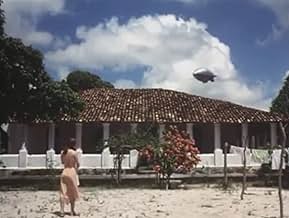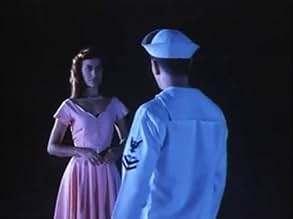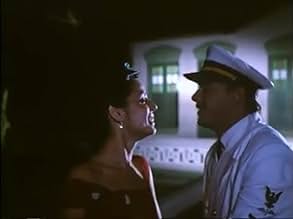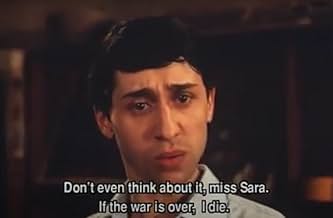In this nostalgic view of a turbulent period in Brazil history, the short film "Tangerine Girl" presents the excitment and enthusiasm of boys and girls from
different countries and cultures sharing the same space, in this case the Northeast of Brazil during World War II when German submarines were attacking Brazilian ships
and the American forces were sent to our military bases to cover the coastal area of Brazil. The American Navy officers were the cause of admiration by the local
teen girls and vice versa, and this story relates to one innocent girl who makes contact with one mariner up there inside a blimp who throws objects, magazines and one
note arranging a meeting one night. That girl later on is nicknamed by him as "Tangerine Girl" but to a popular song at the time.
The movie is based on a short story written by legendary Rachel de Queiróz and it follows quite strictly the same idea presented in the original work, with some
stretch with another characters such as the girl's family, her best friend who also gets involved with a Navy officer, a soon-to-be-married couple, and Zé Mocinha (Tadeu
Mello), the gay guy in town who dresses himself as Carmem Miranda and entertains the American marines. But as for Tangerine Girl little by little she realises things are
not what they appear and that's the shock of reality the movie gives us by tearing apart the innocence of people and the innocence of an era.
While the story doesn't reveal anything new and covers the same area as "For All" (1997), there's plenty of good things to show along with the fine acting from the cast -
though no American actor was cast, the film still works with the Brazilian actors speaking English. There's a great use of humor, a couple of dramatic sequences and the tense
revelation that comes, it's all good and realistic. For those curious in knowing about a tense period where Brazil was still neutral during the war this is a fine movie though
it doesn't get to the actual politics and decisions made at the time. Thanks to the American
investment on Brazilian culture by sending Orson Welles to make the unfinished "It's All True" as a cultural exchange but bear in mind that this was also a policy of getting support
and more allies to the cause; and Brazil was a strategical place in South America yet Hitler's commands made the unreasonable decision to attack our ships and the rest is history.
President Vargas was one step closer on supporting the Nazi regime, the flirting went on for a while but this is also history that came and went.
But the movie is far from those
issues, it covers a nostalgic moment where two cultures got to know each other, spend some good time when the attacks weren't happening and all the girls thought of the navy guys
as romantic Hollywood types. Halfway there...but the charm was there and they all felt for it. 8/10.












